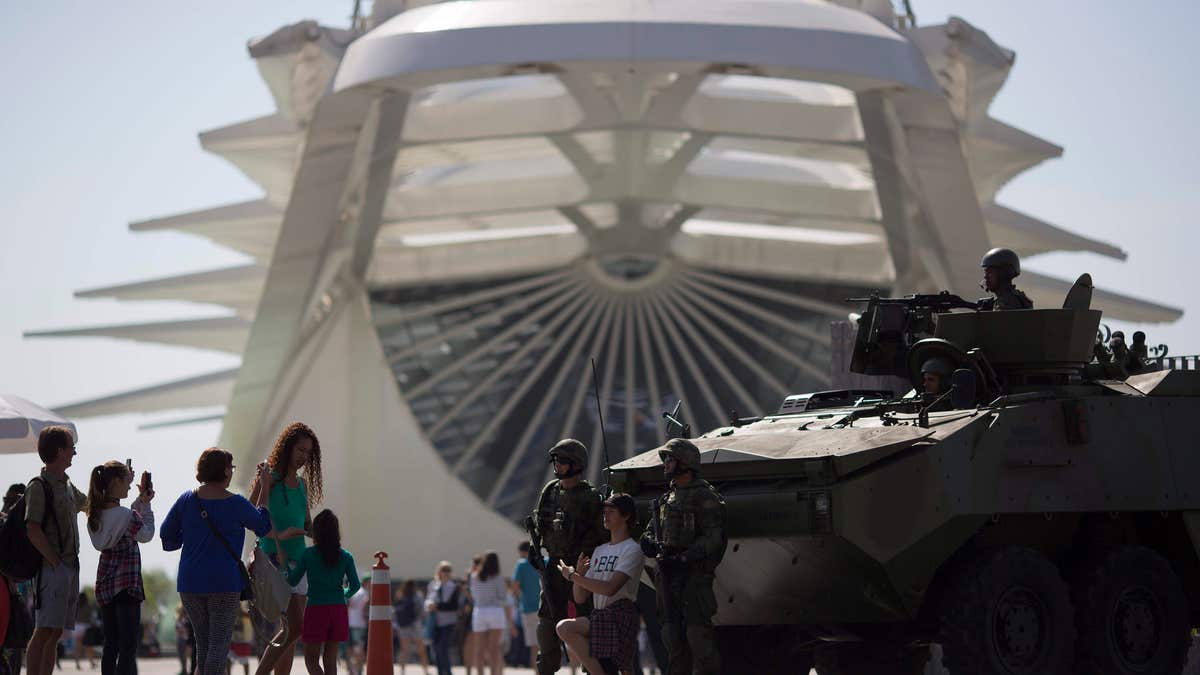
People take pictures with marines and their armored vehicle outside the Museum of Tomorrow in Rio de Janeiro, Brazil. (AP)
Brazilian soldiers were on the streets Saturday, checking out spots around the city that will get intense security when the Rio de Janeiro Olympics open in just under four weeks.
Armored vehicles and trucks carrying troops were accompanied by soldiers decked out in camouflage gear and matching helmets, with rifles slung over their shoulders. The soldiers covered the city — from Copacabana Beach to the central train station and the renovated port area.
Rio's rising crime rate is at the top of a long list of problems confronting South America's first games: the Zika epidemic, severe water pollution, a crushing recession and slow ticket sales.
In addition, Brazil President Dilma Rousseff faces an impeachment trial that is likely to start just after the Olympics end.
The one-day show of force was intense with the Olympics set for Aug. 5-21.
"What we are doing today is patrolling and checking out the areas where we can deploy during the games," Brazilian army spokesman Colonel Mario Medina said.
He said the full deployment would begin on July 24 and continue through the end of the Paralympic Games. Those games are Sept. 7-18.
Rio de Janeiro will use about 85,000 soldiers and police to secure the games, about twice as many as London four years ago. About 10,500 athletes are expected for the Olympics with 300,000 to 500,000 foreign tourists.
"We won't have a problem during the Olympics," Rio Mayor Eduardo Paes said Saturday. "I'd say Rio will be the most secure place in the world during this period."
The state of Rio de Janeiro has acknowledged it's broke, which has delayed salaries for police and hospital workers and raised worries about security in an already crime-ridden city.
Passengers arriving recently at Rio's international airport have been greeted by police holding up banners that read: "Welcome to Hell."
Saturday's deployment comes in a wake of reports of rising violence, which included mangled body parts washing up on Copacabana Beach, and sailors from Australia and Spain being robbed as they trained for the games.
Human Rights Watch said that police have killed 645 people in Rio so far this year. It says some were "most likely the result of the legitimate use of force, but many others were extrajudicial executions."
Officials are also worried about terrorism and say they are they are working with foreign governments to detect any threats.








































